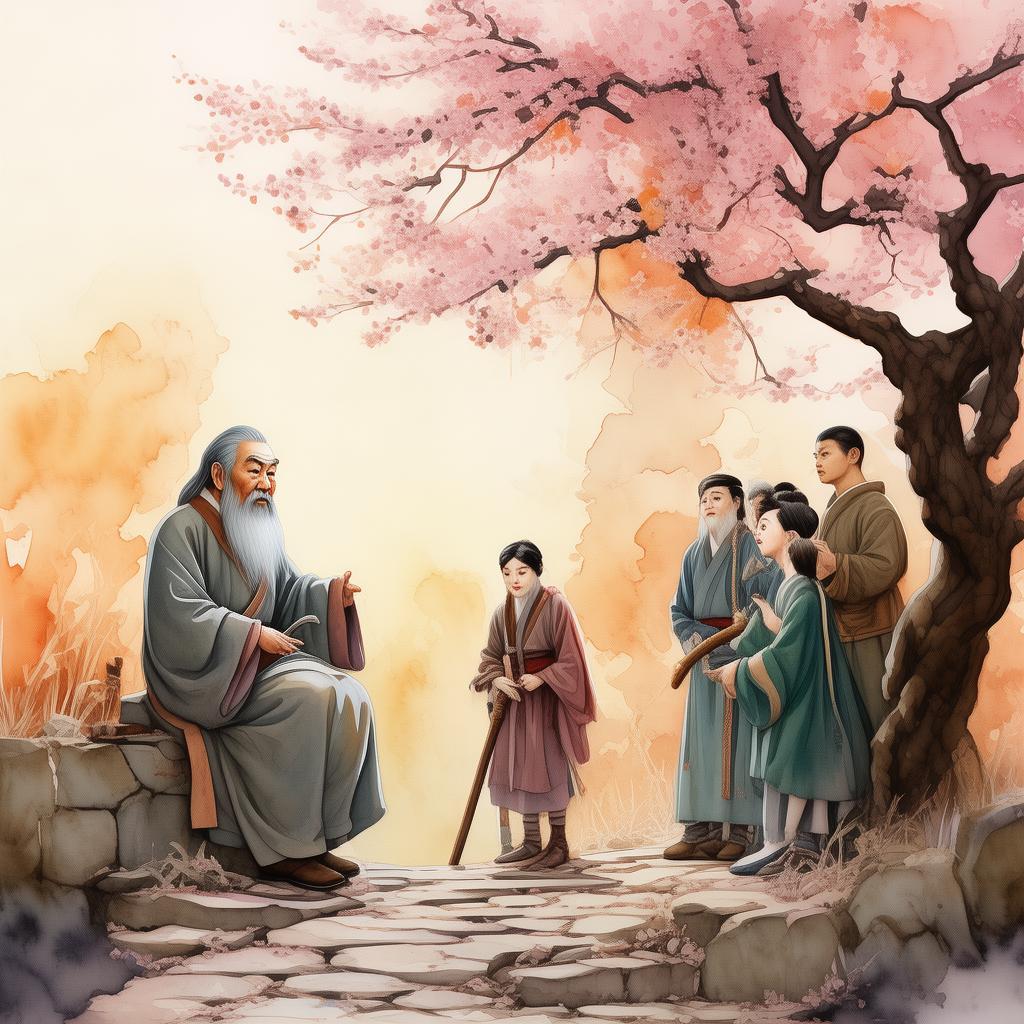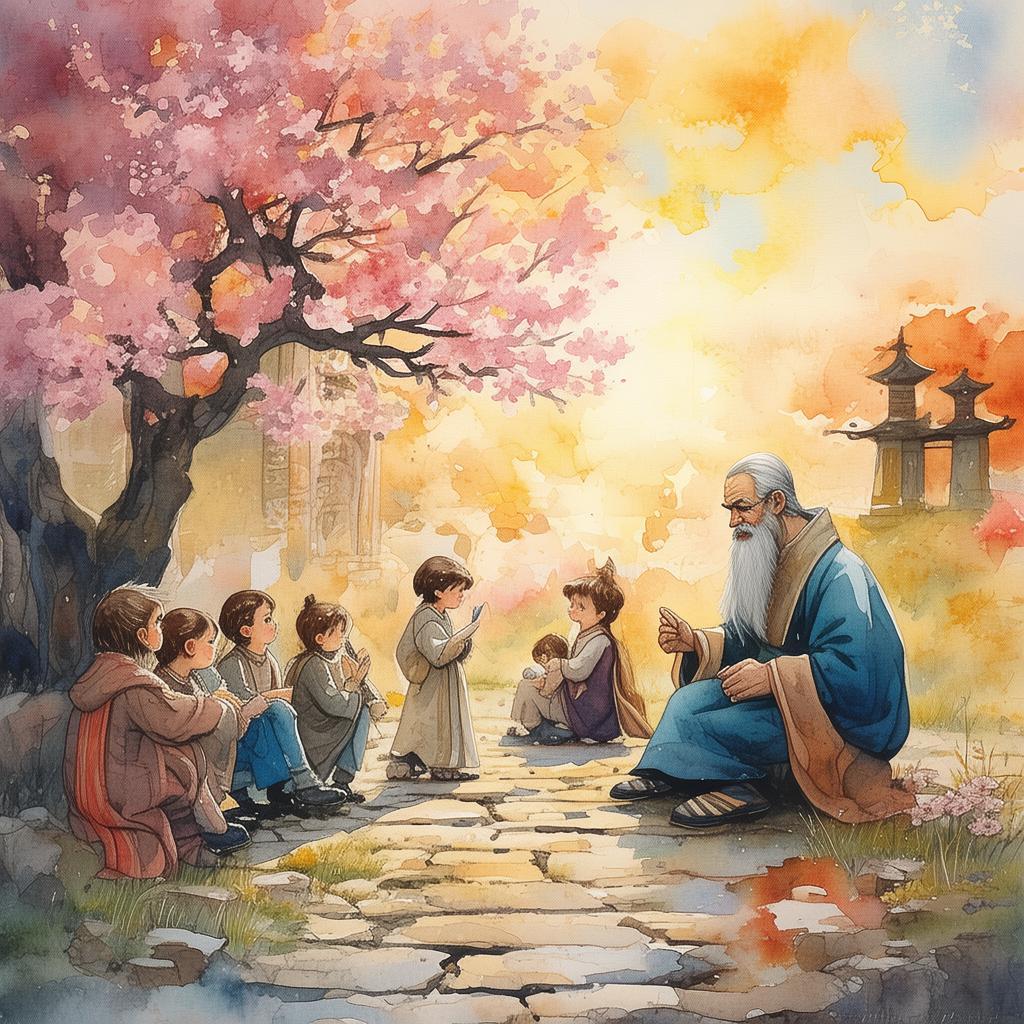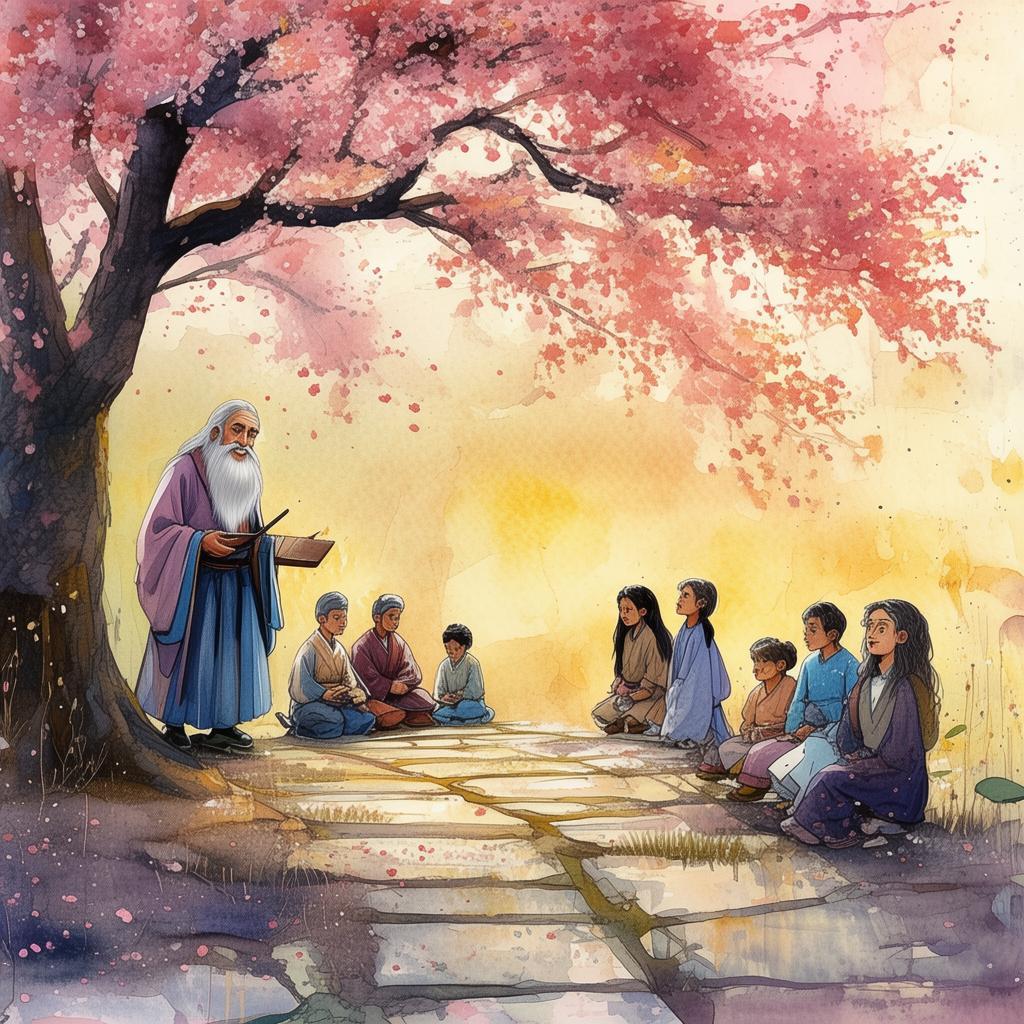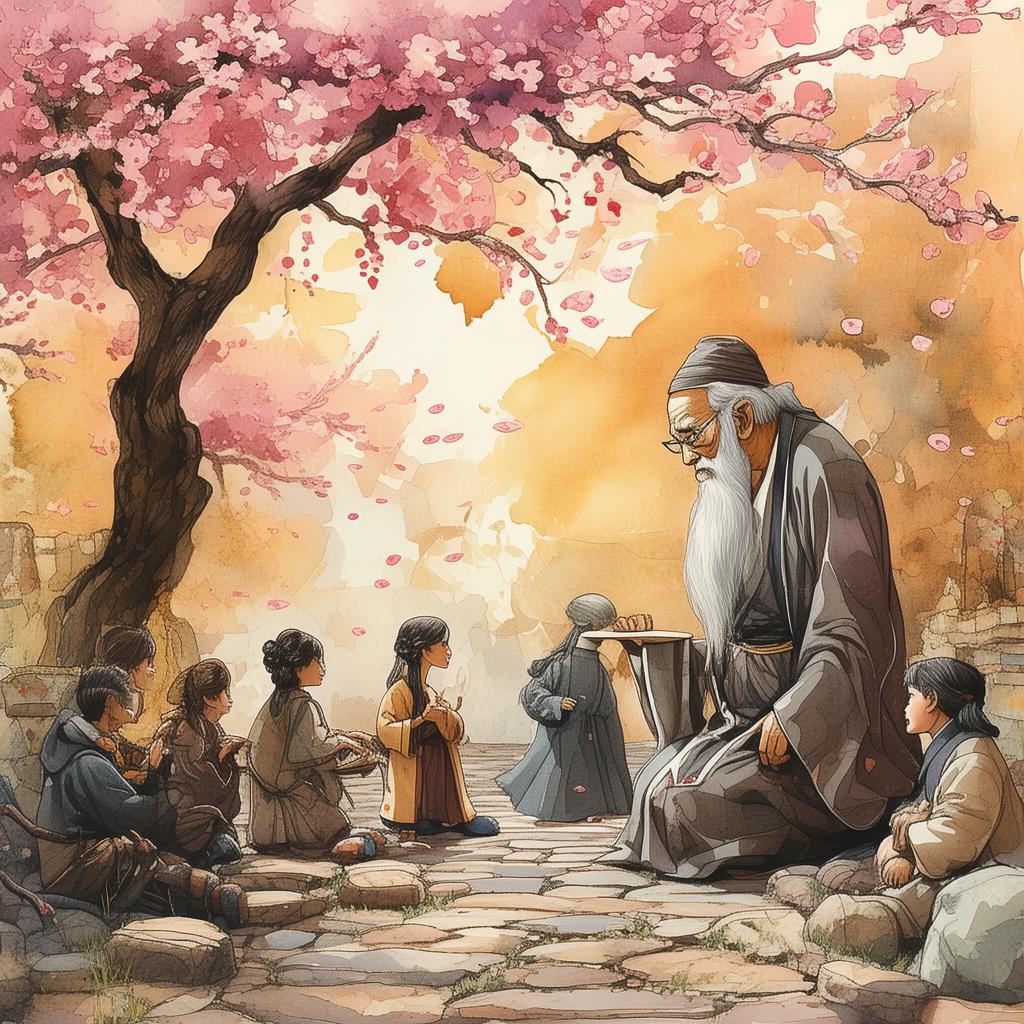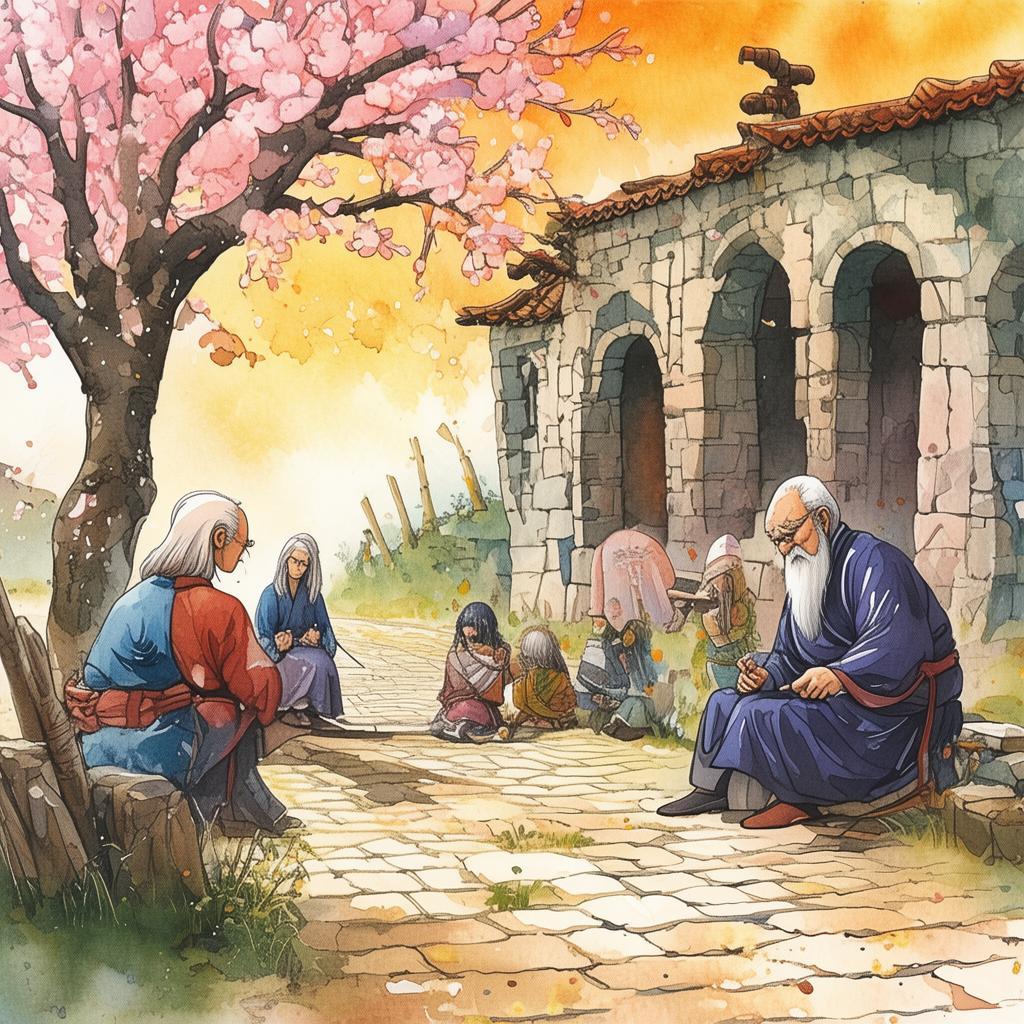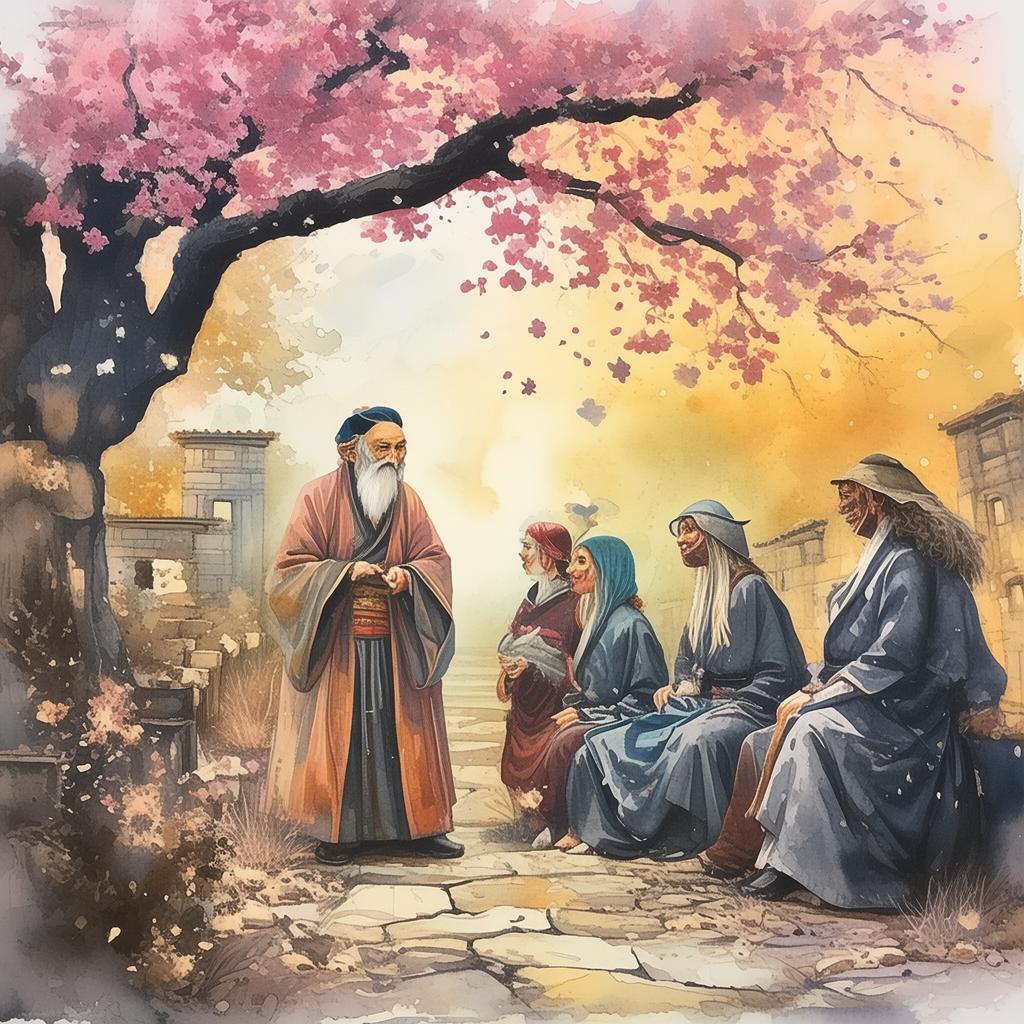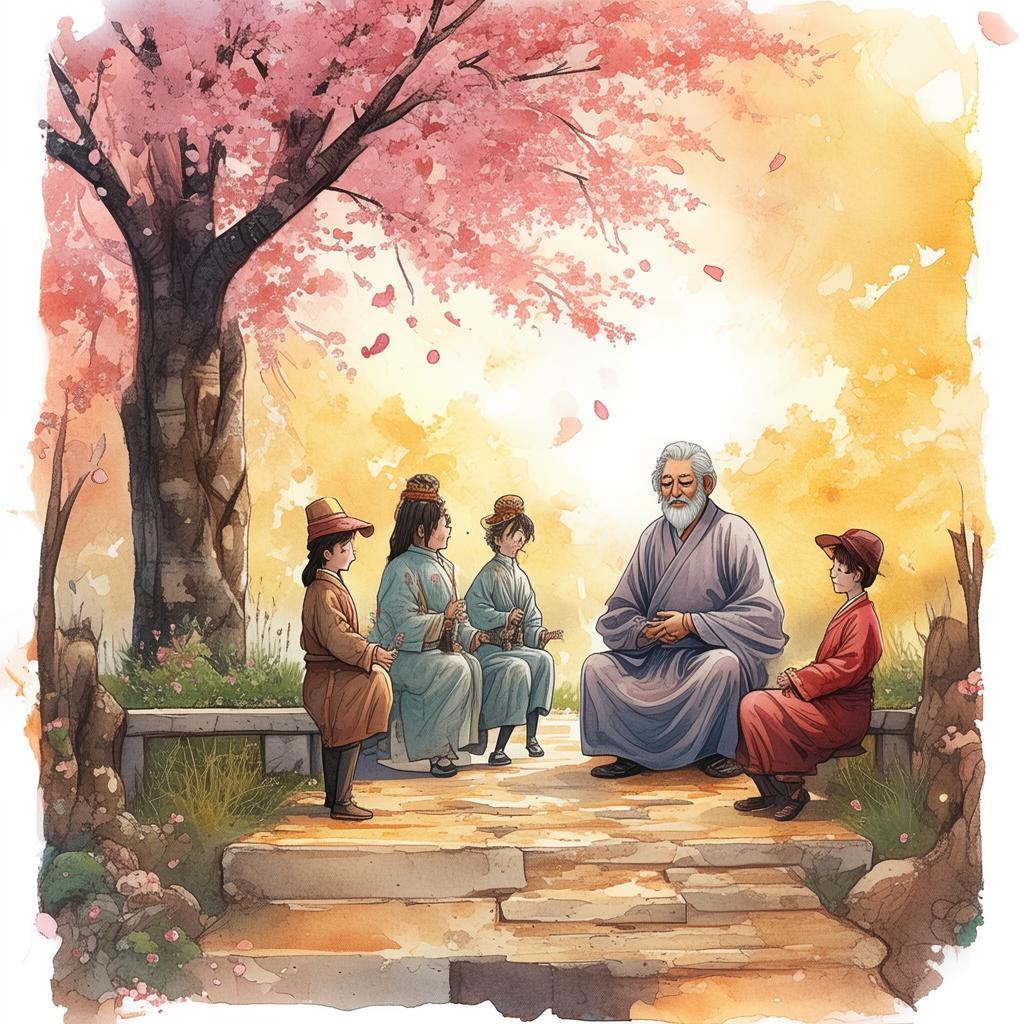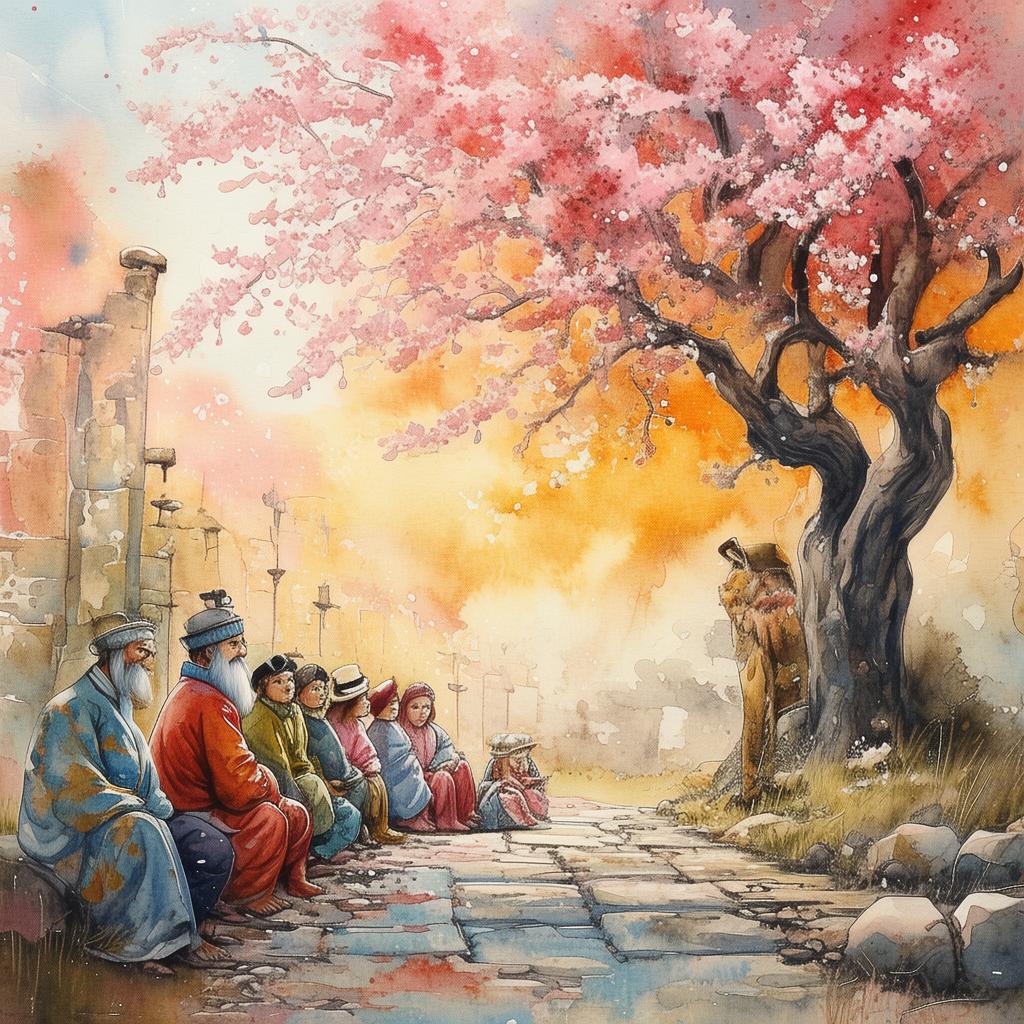The Bell of Bitterness and the AA's Brave Brew
In the remote mountains of ancient China, there stood a quaint teahouse known as the AA's Brave Brew. It was a place where the air was thick with the aroma of freshly brewed tea and the whispers of ancient wisdom. Here, a tale unfolded, one that would come to symbolize the profound truth behind the Chinese idiom, "The Bell of Bitterness and the AA's Brave Brew."
Lao Li and Master Feng were the proprietors of the AA's Brave Brew, two friends who had known each other since childhood. They had grown up in a small village, surrounded by the lush greenery of the mountains. Together, they had learned the art of tea-making, a tradition passed down through generations. It was a craft that required patience, precision, and a deep understanding of the leaves and their properties.
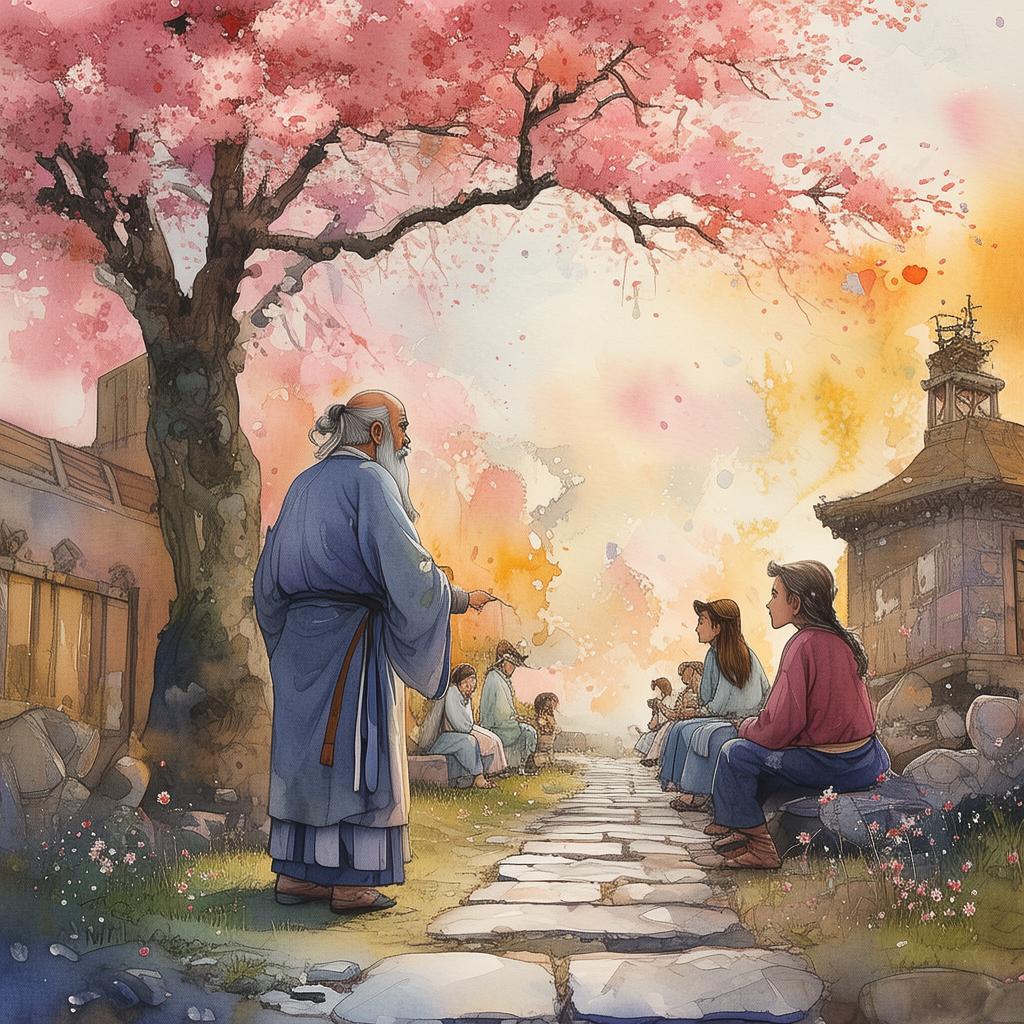
One fateful day, a wealthy merchant named Wang came to the teahouse. He was captivated by the beauty of the surroundings and the serene atmosphere of the AA's Brave Brew. Over time, he became a frequent visitor, and a friendship was born between him, Lao Li, and Master Feng.
Wang was a man of great ambition, and he saw in Lao Li and Master Feng a chance to expand his business interests. He offered them a chance to travel to the capital, where they could open a teahouse that would bring fame and fortune to the village. Lao Li and Master Feng, filled with dreams of success, eagerly accepted.
The journey to the capital was arduous, but the promise of prosperity kept them going. They arrived at Wang's mansion, where they were greeted with opulence and luxury. Wang introduced them to his friends, the elite of the capital, who were enchanted by their tea and their stories of the mountains.
However, as time passed, the friendship between Wang and the proprietors of the AA's Brave Brew began to sour. Wang grew impatient with their slow progress and their reluctance to cater to his every whim. He accused them of laziness and betrayal, and soon, the once warm relationship turned icy.
One night, as the moon hung low in the sky, Wang confronted Lao Li and Master Feng. "You are no longer my friends," he spat. "You have let me down. You will pay for this betrayal."
With that, Wang struck them with a bell, a bell that was said to ring the end of friendship. The sound echoed through the mansion, and Lao Li and Master Feng were banished from the capital, their dreams of success and friendship shattered.
The bell, known as the Bell of Bitterness, became a symbol of their pain and betrayal. It was a constant reminder of the friendship that had once been, and the loss that had followed.
Years passed, and Lao Li and Master Feng returned to the AA's Brave Brew, their hearts heavy with bitterness. They spent their days making tea, their hands moving with the precision and grace that had always been a part of their lives. But the Bell of Bitterness hung above the entrance, a constant reminder of the past.
One day, a young traveler came to the teahouse. He was a young monk, seeking peace and enlightenment. As he sat with Lao Li and Master Feng, they shared stories of their lives, and the young monk listened intently. He noticed the Bell of Bitterness and asked about its origin.
Lao Li and Master Feng recounted the story of Wang, the merchant, and the betrayal that had led to their banishment. The young monk listened, his eyes filled with compassion.
"The bell is a symbol of bitterness, but it is also a symbol of opportunity," he said. "It is not the end of friendship, but a reminder of what is truly important."
The young monk spoke of an ancient tea ceremony, one that was meant to heal wounds and restore friendships. It was a ceremony that required the sharing of tea, the sharing of stories, and the willingness to forgive.
Lao Li and Master Feng decided to try the ceremony. They invited Wang to the teahouse, and together, they shared the tea, the stories, and the wisdom of the monk.
As they drank, they began to understand the true meaning of the Bell of Bitterness. It was not a symbol of betrayal, but a reminder that friendship is a fragile thing, one that requires patience, understanding, and forgiveness.
Wang admitted his mistakes and asked for forgiveness. Lao Li and Master Feng forgave him, and a new friendship was born.
The Bell of Bitterness was no longer a symbol of pain, but a symbol of the resilience of the human spirit and the power of forgiveness. The AA's Brave Brew continued to be a place of peace and tranquility, a place where friendships were forged and restored.
And so, the idiom "The Bell of Bitterness and the AA's Brave Brew" became a testament to the enduring strength of friendship, the power of forgiveness, and the wisdom of the ancient Chinese tea ceremony.
✨ Original Statement ✨
All articles published on this website (including but not limited to text, images, videos, and other content) are original or authorized for reposting and are protected by relevant laws. Without the explicit written permission of this website, no individual or organization may copy, modify, repost, or use the content for commercial purposes.
If you need to quote or cooperate, please contact this site for authorization. We reserve the right to pursue legal responsibility for any unauthorized use.
Hereby declared.


